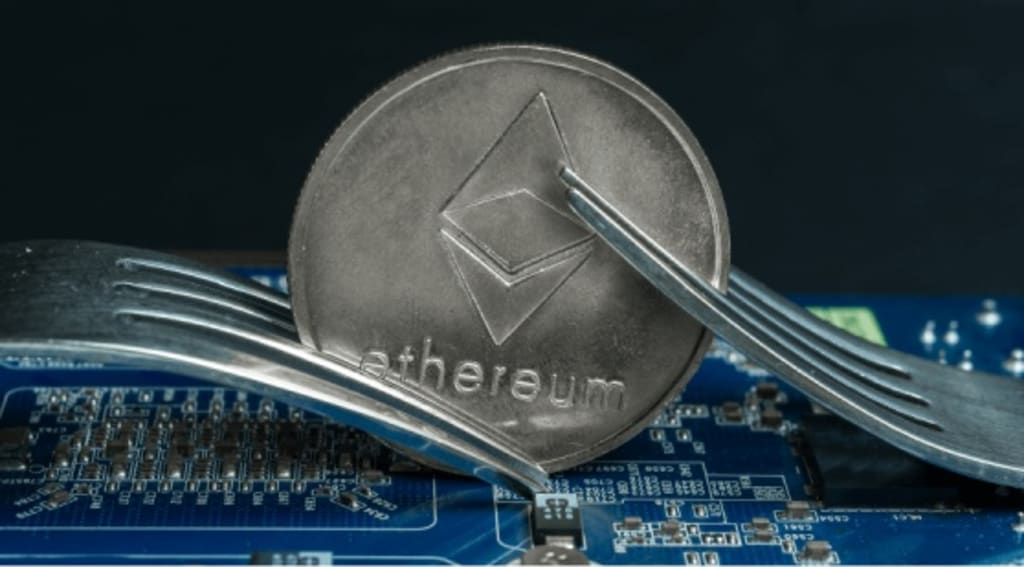Why Hard Fork a Blockchain
Hard forks could potentially become a means of crowdsourcing capital for innovative technological endeavors or cryptocurrency offerings.

In the summer of 2017, bitcoin was split into two coins: bitcoin (BTC) and bitcoin cash (BCH). A hard fork is what's known as a split like that, and later that year, more forks appeared using blockchain development company.
A hard fork (or hard fork) is a major change to a network's protocol about blockchain technology that makes previously invalid blocks and transactions valid, or vice versa. After a hard fork, every node and user must update to the most recent protocol version.
Understanding Fork
When the majority of blockchain users cannot agree on an upgrade, a fork in blockchain results. A lack of agreement on divisive software updates has led to hard forks in several blockchain/cryptocurrency networks, including Bitcoin and Ethereum.
One can distinguish between accidental and purposeful forks. Accidental forks occur when two or more blocks are discovered at once. When fresh blocks are added and one chain outnumbers the other, the puzzles are finally solved.
Intentional forks, or the second class of blocks, come in two varieties—hard forks and soft forks—and modify the blockchain's rules.
Also, Discover | AI for DAO | Robots are Essential for a Better Future
Understanding Hard Fork
A hard fork is a rule modification that has significant effects on a blockchain network's whole protocol. A blockchain's creators or members of the community can create a fork.
All nodes intended to operate following the new rules must update their software because, in comparison to the old rules, valid blocks produced using the new rules may be viewed as invalid or invalid blocks will be viewed as valid.
Since a hard fork permanently diverges from the prior version of the blockchain, it effectively creates a brand-new currency. The new, improved blockchain will be followed by a new path and the old path by the other. The users of that specific blockchain have the option of upgrading and taking one path, or not upgrading and continuing on the other. This is referred to as being "backward-incompatible".
You may also like | Building Blocks to Develop a Robust Cryptocurrency Exchange
Reason to Hard Fork a Blockchain
Add New Functionality
The Blockchain code is upgraded regularly. Since the majority of public blockchains are open source, people from all over the world develop them. The improvements and issues are created, resolved and new versions must be released when the time is suitable.
Address Security Issues
Compared to traditional money (notes, coins, and checks), blockchain (and cryptocurrency on top of it) are relatively new technology. And research is currently being done to properly comprehend them. To address the security vulnerabilities that develop along the process, new versions and updates should be made available.
Also, Visit | Developing a Food Delivery App like UberEats with Blockchain
To Reverse Transactions
If the community discovers that a certain period's transactions were compromised and malevolent, it has the power to nullify them all.
Some Instances of Hard Forks
There have been numerous major hard forks since Bitcoin introduced blockchain technology in 2009. As an illustration, consider Bitcoin.
In 2014, when Bitcoin XT split apart from Bitcoin, it underwent one of the first hard splits in history. A suggestion was made to enhance Bitcoin's maximum transaction rate from seven to 24 per second. To do this, each new block's size was increased from one megabyte to eight. The Bitcoin XT project, however, lost interest quickly after the fork and is no longer in use.
Following the failure of Bitcoin XT, a new proposal to increase Bitcoin's block size was made. Another hard fork occurred in 2017 and gave rise to the new cryptocurrency Bitcoin Cash (CRYPTO: BCH). A hard fork in Bitcoin Cash occurred in 2018, resulting in the creation of Bitcoin Cash ABC (the original version) and Bitcoin Cash SV (CRYPTO: BSV), a brand-new parallel network.
Also, Check | AI and Blockchain for Technological Advancements in Healthcare
Conclusion
For the bitcoin development industry to advance over time, hard forks are essential. They spread in popularity over time and make sure that the crypto industry develops following community opinion. Good coins like Litecoin or Bitcoin Cash have emerged from numerous hard forks. Therefore, in the long run, these forks are crucial for better crypto offerings. The key is to conduct research before investing.
Hire Blockchain Development Company as a blockchain development company can provide end-to-end services, from conceptualization and design to implementation and ongoing support, ensuring a seamless integration of blockchain technology into existing systems or the development of new, innovative solutions.
#BlockchainDevelopmentCompany
#BlockchainDevelopmentServices
#BlockchainApplicationDevelopment
#Blockchainappdevelopment
#Blockchainappdevelopmentservices
#BlockchainAppDevelopmentCompany
#BlockchainApplicationDevelopmentcompany
About the Creator
Bhuvan Deshwal
Sr. Lead Business Analyst at Oodles Technologies






Comments
There are no comments for this story
Be the first to respond and start the conversation.